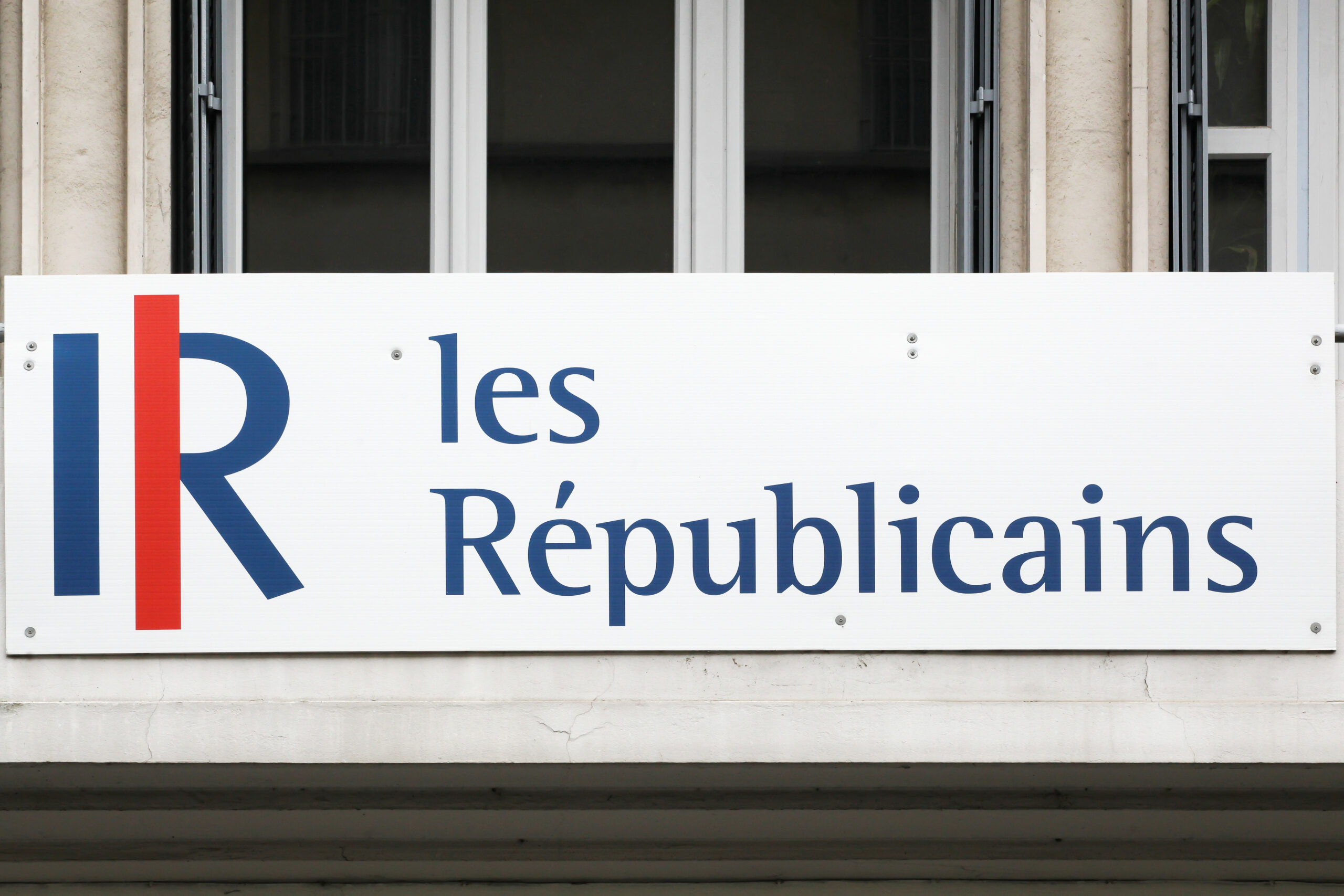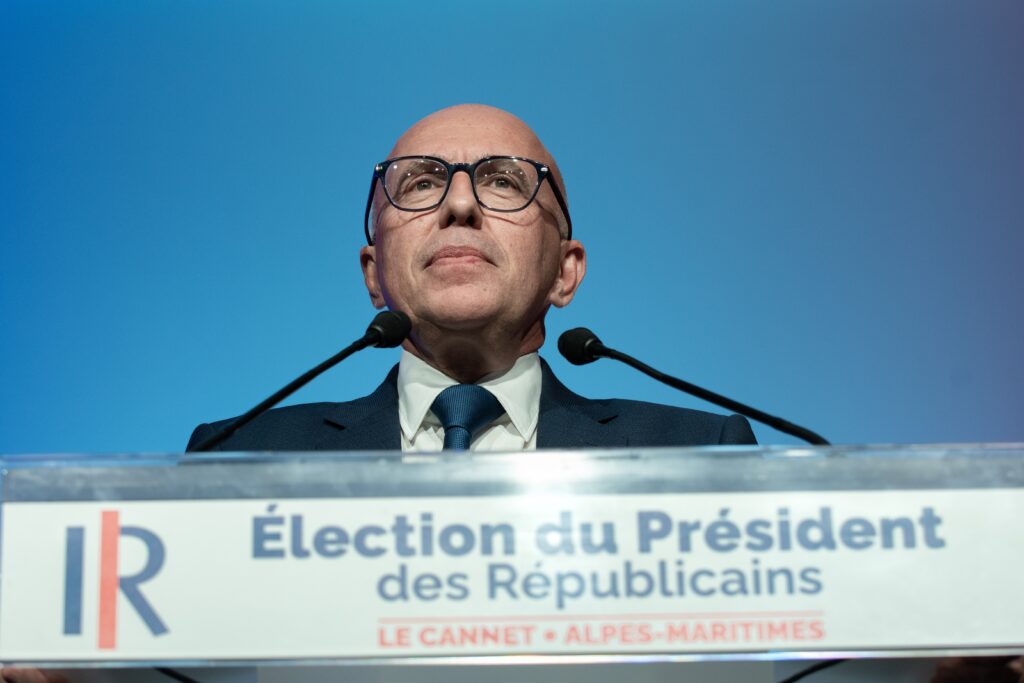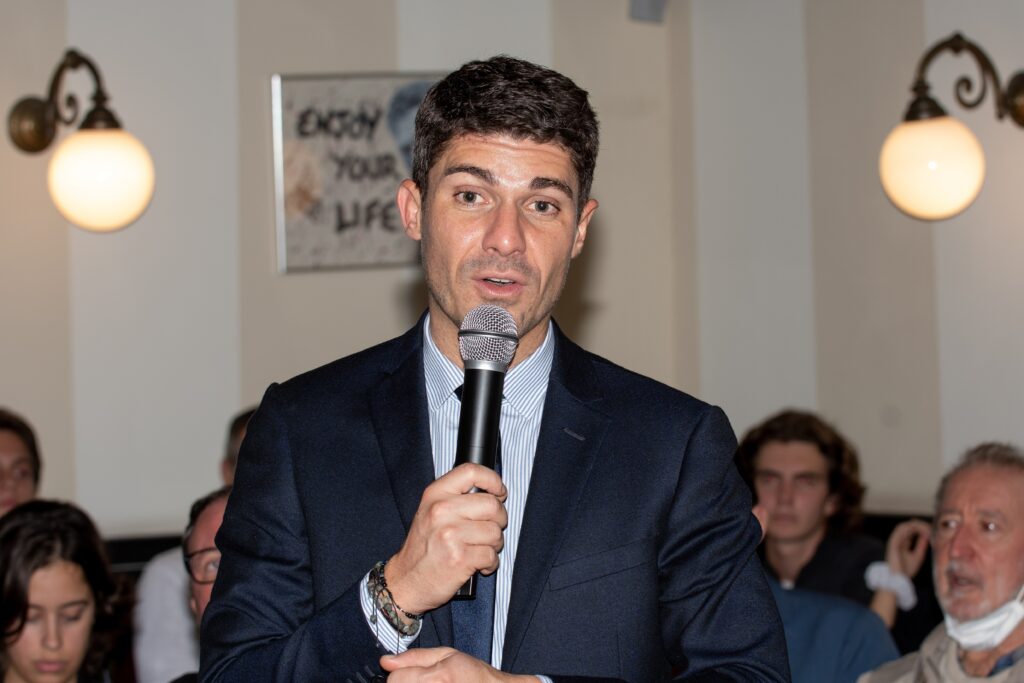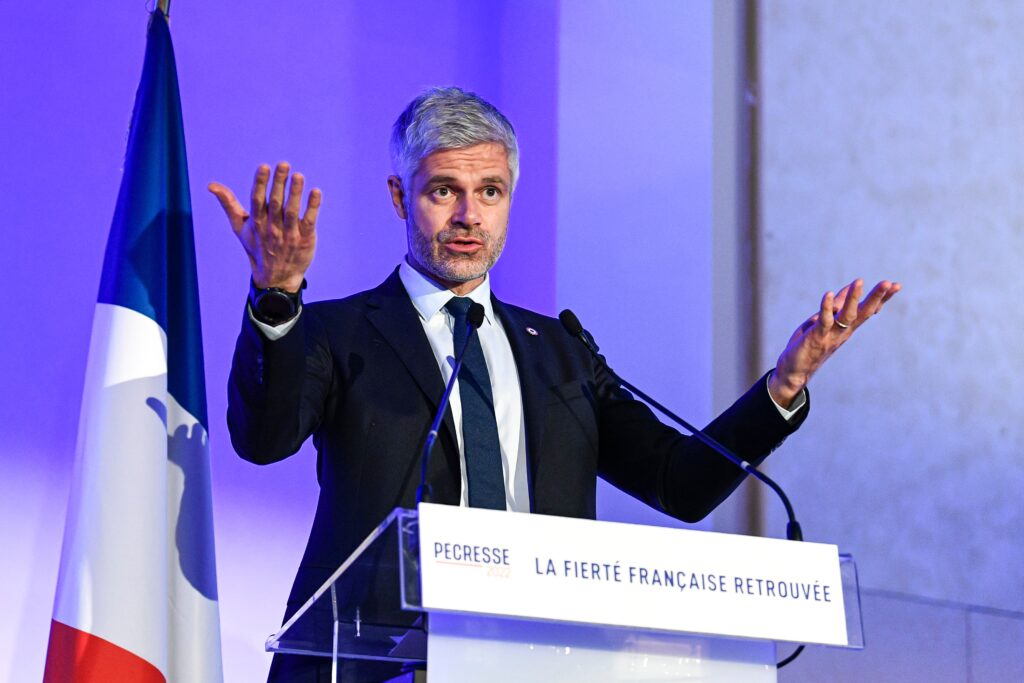How Many Parties on the Right? The Leadership Contest in Les Républicains

Les Républicains, formerly one of the two dominant parties in France (the other was the rapidly shrinking Socialist party) was pulled together in 2002 from various strands of the Gaullist, sovereignist, neoliberal, and traditionally conservative and Catholic right. At first designated as UMP (Union for a Popular Movement), Nicolas Sarkozy in 2015, as party president, renamed it Les Républicains. The unified movement was the antidote to Leftist victories in what was believed to be a right-leaning electorate.
And so it was. For a few years.
The Right in France is now split again. Les Républicains are hemmed in by the populist Le Pen party, the Rassemblement National, and the tiny Zemmourist party Reconquête on the extreme right; and by the Macron party, newly renamed Renaissance, which has absorbed much of the center Right. With this configuration, Les Républicains are attempting to create some sort of middle lane to distinguish themselves from the parties on either side.
The recent two-round election for the party President, which was concluded on December 10-11 by an online vote, has provided some clues about their likely route.
The first round of the leadership contest featured three candidates.

The winner, Éric Ciotti, on the far right of the party, is a member of the National Assembly as well as a departmental councilor of Alpes-Maritimes, in the traditionally right-leaning region of the Riviera (PACA, or Provence-Alpes-Côte d’Azur). He is 57.

Bruno Retailleau, age 62, is a senator from the Vendée department in western France, president of the LR caucus in the Senate and regional councilor of the Pays de la Loire region, of which he has also served as president.

Aurélien Pradié, age 36, is a member of the National Assembly from the region Occitanie, in the southwest, where he is also a member of the Regional Council.
The one debate among the three took place on Monday, November 21, 2022. Les Echos, a leading financial newspaper, believed that Retailleau had not withstood the attacks on him from the other two, largely because the LR in the Senate, under his leadership, has tended to side with Macron’s government; and because he did not give a clear answer as to whether he would run for president in 2027–a matter that would seem less than urgent, except that Ciotti wants to choose their presidential candidate next year, and he wants it to be his friend Laurent Wauquiez, former president of Les Républicains (2017-2019) and current president of the Aura Region (Auvergne-Rhône-Alpes).

All had something to say about the November crisis of the 234 clandestine migrants picked up by the Ocean Viking, an NGO rescue ship. The ship was refused entry into successive Italian ports before France finally allowed them to disembark in Toulon–a cause célèbre that provided many talking points for the Right. Ciotti was the most uncompromising in the debate: “Giorgia Meloni was courageous and effective [in refusing entry], Emmanuel Macron was cowardly and impotent. . . The best way to save lives,” Ciotti continued, “ is [to ensure] that no boat leaves the African coasts,” adding finally, “No taboos, no political correctness, . . . we react with authority.” The other two instead offered proposals to modify the law–probably more practical, but also less striking .
On the matter of the ENR, the renewable energy program, Retailleau’s LRs in the Senate had voted for the government’s approach, which also includes the hotly contested policy of windmills, hated by those along the coast; both Pradié and Ciotti attacked him, with Ciotti asserting that “the only carbon free energy is nuclear power,” and with Retailleau reminding them that he written a book on the construction of “an ecology of the right.”
So much for all that.
The most interesting aspect of the contest was the challenge to the Old Guard mounted by Aurélien Pradié. In Pradié’s interview with Les Echos, asked whether he would choose Ciotti or Retailleau if he did not make it to the second round (he didn’t), he suggested that it was time to “pass the torch.” He himself, he suggested, did not want to “eternally replay the matches of yesterday and the day before yesterday,” but rather to “awaken” the right. Who, he asked, would be facing Jordan Bardella (newly elected president of the Rassemblement nationale party), Mathilde Panot (leader of the LFI caucus of la France insoumise in the National Assembly) or some new face of the macronie? He named no one from Macron’s group–in large part, one suspects, because Macron has not, to date, cultivated any successors. Pradié, by running for the presidency of the party, made himself a national figure and showed his willingness to take on a leadership position.
The winner of the party contest, as expected, was Éric Ciotti, who had won 43% of the vote in the first round against his two other opponents, and won the second round with 53.7% of the vote. The vote was online, from Saturday to Sunday at 8pm. The voters were those who are formally members of Les Republicains, a total of 91,105, of whom nearly 70% voted.
Le Figaro noted that Ciotti’s predecessors as party president had been, most recently, Christian Jacob, Laurent Wauquiez, and Nicolas Sarkozy, who held the office after being defeated in his second run for the presidency. Ciotti had been one of the stalwarts who had stayed with François Fillon to the bitter end in his 2017 presidential run. (Fillon, once the frontrunner, was bedeviled by charges of misuse of public funds, for which he has since been convicted.)
Ciotti is considered the farthest to the right in his party, and he had stated that if the second round of the presidential election came down to a choice between Macron and hard-right Éric Zemmour, “I prefer Zemmour.” This had led Jean-François Copé (deputy from 2007-2017, one-time minister of the Budget, president of UMP from 2012-2014) to issue a warning about the risk of a “schism” in the party. Ciotti admitted, as well, that he had made an error in his handling of the Grégoire Fournas affair, the instance of a newly elected RN who had shouted “Go back to Africa!” at one of his fellow deputies as he discussed the Ocean Viking affair.
Ciotti believed he had erred not by excusing him, as one might guess, but rather by his “hasty” condemnation, leading Ciotti to sound, as some of his fellows on the right had suggested, like a member of LFI.
Fournas, in his own defense, had said he was not denouncing the LFI deputy who was speaking, but rather the illegal migrants crossing the Mediterranean (though Fournas had said “he,” not “they.”) Stéphane Le Rudulier, Senator from Bouches-du-Rhône (Paca), seized upon this revision: “To say that illegal migrants should go back to where they came from, as Deputy Grégoire de Fournas expressed, is not racist. If we no longer have the right to say that, then we can no longer have a migration policy.” Further complicating the issue of moderate v. extreme, Le Rudulier was the spokesman of Bruno Retailleau for his campaign for the LR presidency. And MEP Nadine Morano, Ciotti’s political advisor in the campaign, described the sanction of Fournas as “a shame for democracy!” LR Deputy Éric Pauget of Antibes had condemned Fournas’s outburst, but noted that he had since been “targeted” by online attacks, including those who invited him to bring the migrants to his own town.
This all may sound familiar, and Les Républicains may yet fail to carve out a separate pathway the RN, forcing their own moderates into Renaissance. But in terms of institutions, the French have two major strengths. First, their lack of an electoral college allows for a multiple-party system, which in turn allows the extremists to form their own parties, rather than forcing them into one of the two. Second, the French parties “invest” their candidates, and expel those who do not conform to party principles. And a third strength: all of the LR candidates were officeholders with a record–in other words, not Ronna McDaniel or the My Pillow guy.
All images from Shutterstock.com.
Sources:
Jacques Paugam, “LR: ce qu’il faut retenir du débat entre Ciotti, Retailleau et Pradié, Les Echos, November 22, 2022. https://www.lesechos.fr/politique-societe/politique/lr-ce-quil-faut-retenir-du-debat-entre-ciotti-retailleau-et-pradie-1881321
Jacques Paugam, Stéphane Dupont, “Aurélien Pradié: ‘A droite, il faut cesser de faire du clientélisme politique,” Les Echos, November 15, 2022. https://www.lesechos.fr/politique-societe/politique/aurelien-pradie-le-report-de-lage-de-la-retraite-cest-une-maniere-de-sacheter-du-courage-sur-le-dos-des-francais-1879212
Emmanuel Galiero and Marion Mourgue, “Présidence LR: Éric Ciotti, la victoire d’un favori,” Le Figaro, December 11, 2022. https://www.lefigaro.fr/politique/eric-ciotti-elu-a-la-presidence-des-republicains-20221211
Emmanuel Galiero, “L’affaire Fournas’ sème le trouble dans l’électorat LR,” Le Figaro, November 11, 2022. https://www.lefigaro.fr/politique/l-affaire-fournas-seme-le-trouble-dans-l-electorat-lr-20221107